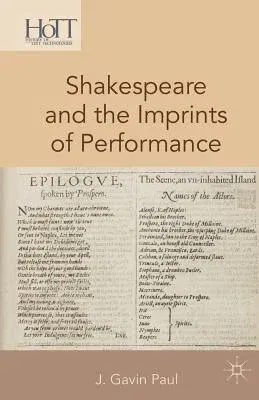J Gavin Paul
(Author)Shakespeare and the Imprints of Performance (2014)Paperback - 2014, 18 December 2015

Qty
1
Turbo
Ships in 2 - 3 days
In Stock
Free Delivery
Cash on Delivery
15 Days
Free Returns
Secure Checkout
Part of Series
History of Text Technologies
Print Length
226 pages
Language
English
Publisher
Palgrave MacMillan
Date Published
18 Dec 2015
ISBN-10
1349493937
ISBN-13
9781349493937
Description
Product Details
Author:
Book Edition:
2014
Book Format:
Paperback
Country of Origin:
NL
Date Published:
18 December 2015
Dimensions:
21.59 x
13.97 x
1.35 cm
ISBN-10:
1349493937
ISBN-13:
9781349493937
Language:
English
Location:
New York
Pages:
226
Publisher:
Series:
Weight:
294.83 gm

